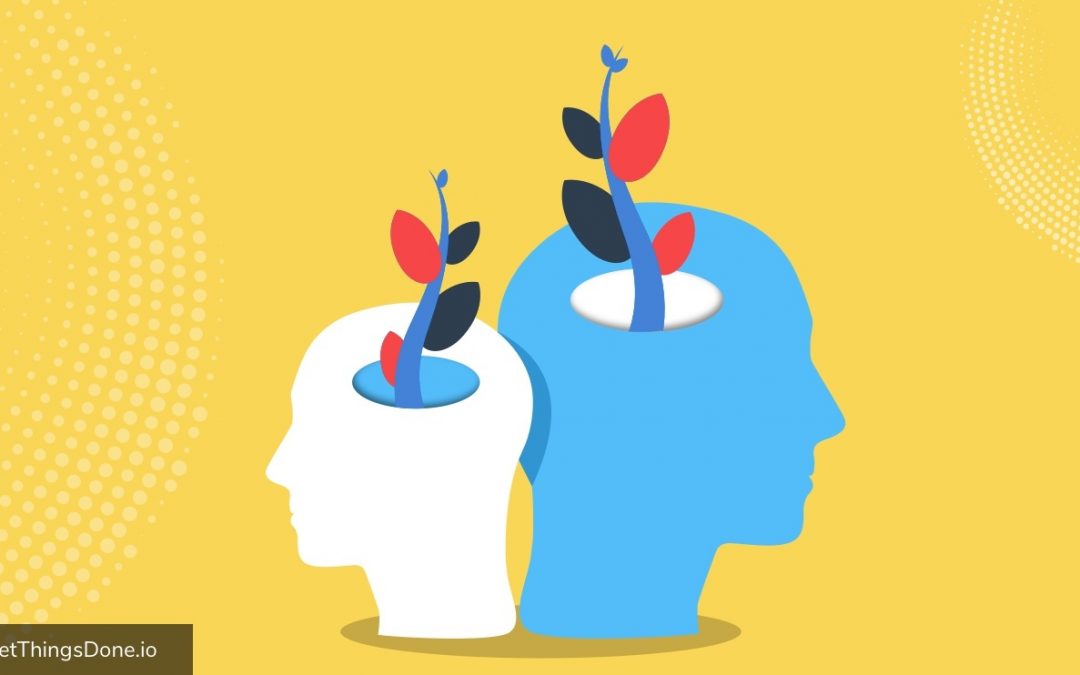The nature of professional wisdom
The performance in life is the measure of value. It is about spending your time, vigor, energy, resource, money, and many more. All these depend upon how do you equate your time in customary contexts. What matters is your determinants of improving and accelerating the most by utilizing your skills-learning, and happy to settle with good enough options that embed you. So, how do we compare and connect ourselves in our daily computing world!
Apparently, the web is a simple literal-minded beast. The infrastructure of the million sites evolving every day and the wisdom is far more than the occasional provocation of the users come in terms and, do we mean the technology has provided us a great choice? Hence, we call that our lives are increasingly rooted in computing, bringing a sense of purpose, or is it merely trying to configure the expectations, or do we need to break down the concept of human reaction in any capacities of hacking productivity.
Abbreviate the key problems in our professional space
Let’s look at the inference to deal with often severe and undefined problems. One may well explore that the workplace should need individuals who score high on integrative strengths such as wisdom. To get through the sensibilities of wisdom is relatively a small field, which is unassumingly tiny compared to the range of distinct or desirable traits. Though the current wisdom models marginally differ in terms with the nature of the traits listed, and we will consider only those to look at solving problems.
We figure out the fundamental problems of modern workplaces at three levels- Involving individual employees, that could be stress-related or lack of meaning. The teams and leadership, the weight could be abusive, over-burdening, control, bias, and impoliteness. The organization itself- This could be a lack of shared, corporate, ethical, and environmental accountability. The repercussions are many in each of these related areas that are severe denominators for being involved or associated with organizations, people, and societies.
The psychology of wisdom
What’s wisdom, signify? It’s quite considered relatively trivial. There are encouraging psychological models of wisdom that have been established during the last two decades. The operational wisdom model is also gaining importance, like assessments using wisdom. The term is based on reference to the assessment limits to communicate the valid information about the competencies, and the reason for wisdom-relevant problems is still not considered, unlike performance-related assessments are the order of the day in terms of the selection process of the organization.
Let’s understand how do you conceptualize and measure of wisdom at the source. What we know has been an initial developed self-report questionnaire to gauge the personality traits, which researchers in this tradition have considered typical of a wise personality. A second research tradition has focused on wisdom as highly developed experience-based knowledge and reasoning skills. In this tradition, researchers have developed performance-based measures to assess wisdom-related reasoning and knowledge about difficult and uncertain problems related to the meaning of conduct life thoroughly.
Many research scientists working in the practice of psychometric models of intelligence have conceptualized wisdom as factual knowledge. It’s also part of developed skills and heuristics. Ms. Ursula Staudinger of Colombia University cites the representation of wisdom as a fruitful topic for psychological investigations for at least two reasons. First, the study of wisdom underscores to explore the continual optimization and fosters the cultural evolution of the human condition. Second, it illustrates the collaboration of cognitive, emotional, and motivational processes. The growing scope of psychological wisdom research over the past few decades demonstrates that it is possible to investigate this complex construct with empirical rigor. Since then there are five main areas that have been established-
(a) Lay definitions of wisdom
(b) Conceptualizing and measuring wisdom
(c) Understanding the development of wisdom
(d) Investigating the malleability of wisdom
(e) Applying psychological knowledge about wisdom in life contexts.
Strength of Wisdom in the organization
There is no comprehensive definition of wisdom that exists today. Many are overlapped and considered as a multidimensional concept that embroils deep insights and sound judgment through the ability of a person. In the practice of research on intelligence- the conceptualization of wisdom is known to be a highly developed knowledge structure and, the phase is assessed via performance-based measures. Thus, the main question is whether a person can reason and think wisely and whether his or her knowledge about the self or life in general approaches the wisdom criteria such as reflection, insight, and compassion.
It seems easy in saying that people can change the tenor of the workplace and create harmony in motion towards a favourable result. In reality, the established wisdom case-studies in work and organizational context are scarce and insufficient. The organization’s trust is inspired through philosophical literature based on cultural fitness. Barring few, they hardly use any of the contemporary psychological conceptualizations of wisdom, that is directed to an authentic, humane, and virtuous outcome with using the elements of articulation, aesthetics, and tangibility.
Why is fostering wisdom is so vital to the organization? Looking at the conditions where the fair weather does not make any sense, and when enterprises, brands, businesses are making space from mediocre to reinvent themselves, the influences are varied and could be dismissed. The cultural shifts are becoming less about the enterprise outlining the external impacts. Also, the speed of change, which may be relevant yesterday, maybe extinct today. The case is right in front of us, and the pandemic of our times has been unsettling the very roots of health, economics, commerce, trade, unemployment, politics, and so forth.
Wisdom and leadership
Wisdom is a developed form of pragmatic knowledge. It’s fascinating to know how wisdom is exposed through leadership behaviour and applying wisdom as a predictor of established leadership constructs. In concise- The leadership should make use of successful intelligence, and technical expertise to seek a common good, and balance being exceptional and perceptions, to deal appropriately with their environment. Besides, the primary example is to augment the potential of the people and allow uncover their wisdom.
The examples in their research program on “social practice wisdom” (Rooney, Mckenna & Liesch), mention that the authoritative principles of leadership and management should be based on reasons and observation. The related research in the tradition of organizational knowledge-management has conceptualized wisdom as the highest level of cognitive processing among managers and professional workers, assuming that wisdom improves the workday to overcome increasingly complex, knowledge-intensive workplace. i.e., data > information > knowledge > wisdom model. (Mackay, Zundel, & Alkirwi, 2014).
The key problem in the workplace
The workplace is typically an ecosystem in which individuals with different personalities as a communion come together and strive for the common cause. People spend more than a third of their lives at work, and research shows that work-related pressure is a significant problem, with an estimated 40% of people describe their jobs are tremendously stressful. Some of the common origins are interpersonal conflicts, discrimination, sexual harassment, bullying, communication issues, gossips, performance issues, poor job fit, low motivation, no job satisfaction, and many are ingrained like the roles and functions, etc. The implications add up to severe health-related markers like mental health symptoms, pain, insomnia, hypertension, nervous breakdown, heart attacks, and other issues.
Grace wisdom to address and solve workplace problems
The psychology has had only limited success in terms of developing suggestions to creatively address and resolve the problems, as mentioned earlier in the workplace. It’s also known that wisdom is nothing new associated with the workplace and been existing for long. It simply has not been accredited and legitimized as essential to organizational success. The social-scientists argue that wisdom can help address these issues above and beyond high levels of academic intelligence, job-related expertise, and mature personality traits. Specifically, acquiring and activating wisdom offers several advantages to individuals, teams, and organizations.
First, wisdom helps individuals not to see problems in isolation but rooted in multiple contextual layers (i.e., lifespan contextualism). For instance, wisdom makes them aware of relevant short- and long-term causes and consequences of a problem, and how problems develop over time. Second, wisdom enables individuals to perceive and understand problems from different perspectives (i.e., value relativism/tolerance), including the views of other people they work with or associated. (e.g., coworkers, clients, customers, supervisors, employees). The other statement is about balancing different interests and to maximize the common good. Third, wisdom facilitates the understanding that an individual cannot know everything and helps to develop strategies for dealing with the uncertainty of internal and external factors (i.e., recognizing and managing unpredictability). Also, the need for previsions of ambiguity opens up the large space of grey, which is bound for improvements. In turn, wisdom is an integrative and holistic characteristic which constantly lead the innovations and help adopt to better solutions of the modern-day dynamic work centres.
The summation reviews that the pieces of evidence are necessary to mitigate biases. Wisdom-related knowledge and judgment remain dynamic and developable properties. As stated, there are a few convenient ways of making use of this malleability and latent reserve potential. First is to increase one’s level of wisdom-related knowledge by engaging in the behaviours that in broad-spectrum have been shown to facilitate the acquisition of wisdom-relevant resources. An alternative to this long-term method is to use strategies, i.e., interactive minds and the method of loci. Interestingly, this involves a basic mental strategy of imagining yourself in the room, with placing objects, which could be a lamp, study table, music instrument, bench, and chair in a structured route in a garden or a different place.
The word loci are the plural for locus or location. The objects that we cerebrally position are the slices of information, so you visualize to remember in a particular order, that motivates the imaginations to recall the data of our learning. The cueing in the mind that is already in store needs activation, which means distancing oneself psychologically from problems and establishing an ego-decentering cognitive mindset could boost wise reasoning, attitudes, and behaviour. It is essential to note that these two strategies overlap to some extent, as the interactive minds and method of loci paradigms can also be said to involve forms of ego-decentering.
In regards to the team level, a large body of research in social psychology has shown that group decision-making is not always better than individual decisions, due to mixed motives and constraints in shared information search and processing. Nonetheless, we explore that wisdom of employees and managers can be an asset here as it contributes to optimal group decisions by decentralizing and contextualizing decision-making, besides helping team members manage differences in knowledge and experience.
Conclusions
Unless we learn the wisdom to know about ourselves, we could run the danger of destroying self. The concerns of civility and learning are still taking shape in each of our lives and looking at the macro-scope of problems confronting humanity. The problems are solved with the advent of modern sciences and the inventions that have built the overwhelming foundations and by far seem a long time ago. The perennial problem of humanity is evident, and the ways to counter, instead look at wisdom through the new lenses and recognize the uncertainty.
The other interesting aspects are bringing about a revolution like an academic inquiry as a whole so that it takes up its proper task of helping humanity learn how to apply wisdom by increasingly cooperative rational means like the vision of wisdom networks, similar to the social barometer. The purpose of the collaborative approach aims to represent specific domains towards creating a wisdom-based society. The technology can draw a significant impact to view wisdom computing research as a holistic characteristic, that brings about many other dimensions, like wisdom-based advocacy and participative initiatives in the workplace.
The pledge of wisdom network is primarily required to eliminate the confirmation biases and value trustworthy and deep inquiry keeping the universal common good in mind. It’s also the need of an hour to recognize the research matters that arise in the design and implementation of wisdom networks. Thus, it means a strong humanistic computing and knowledge management.



